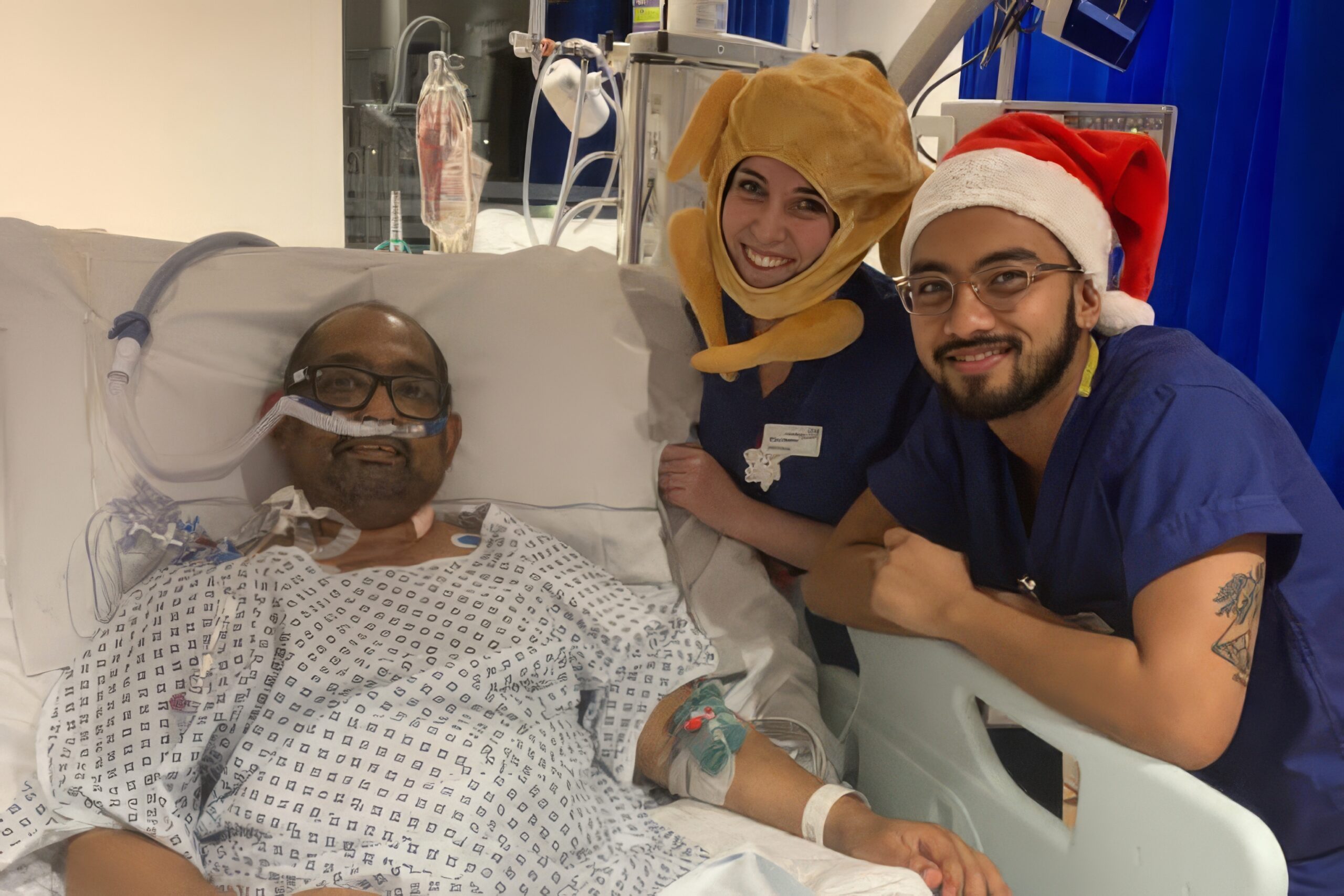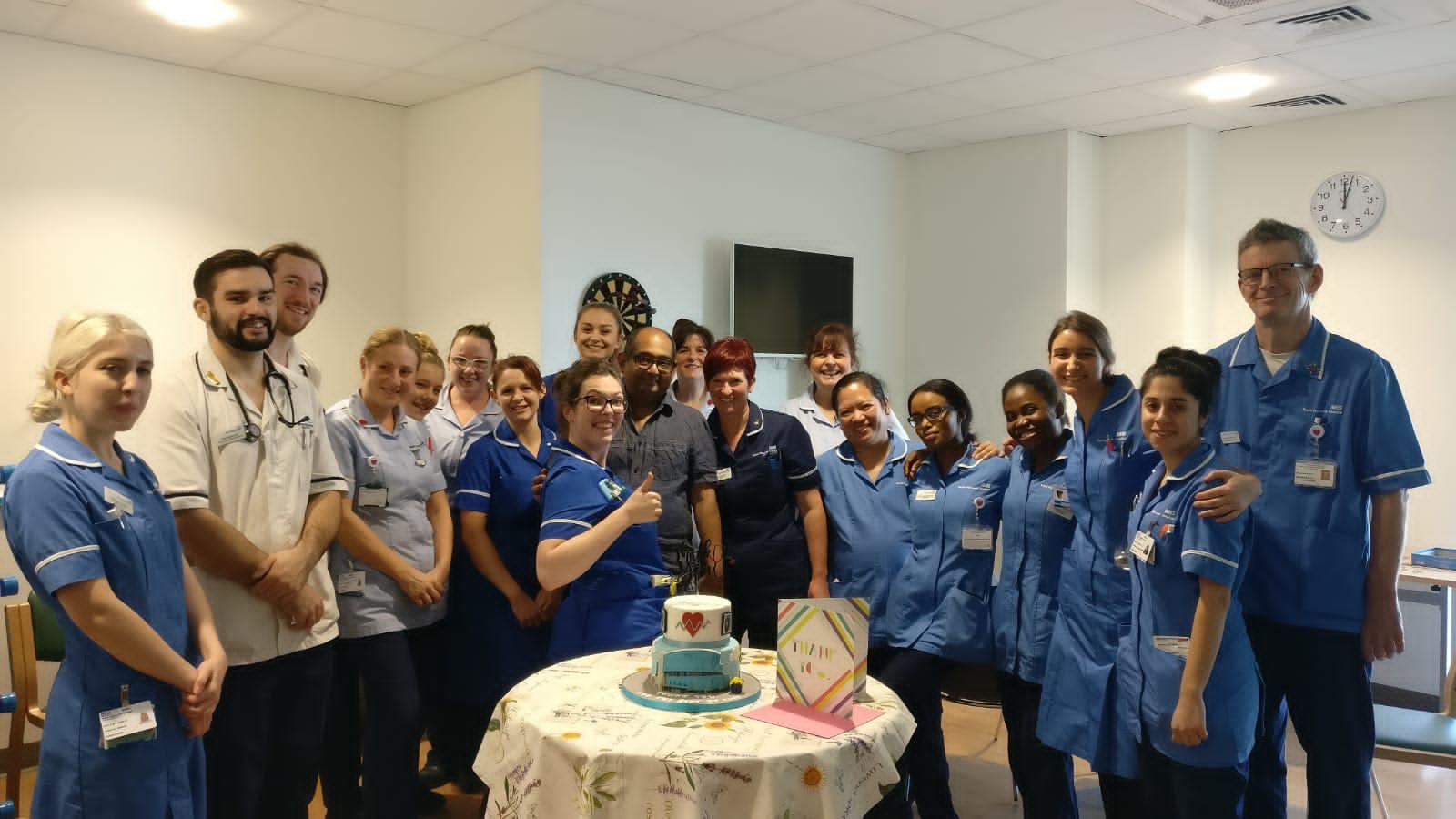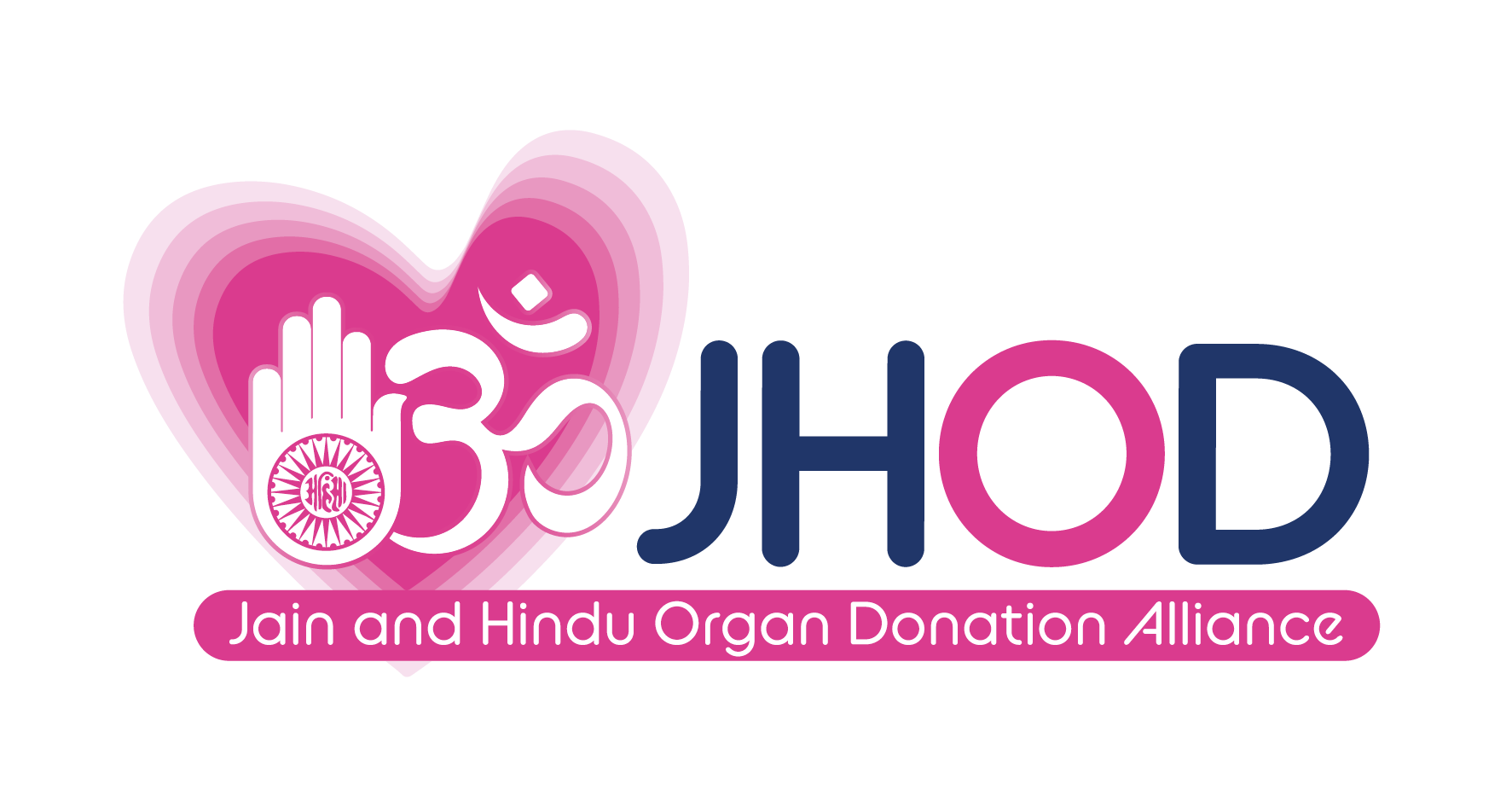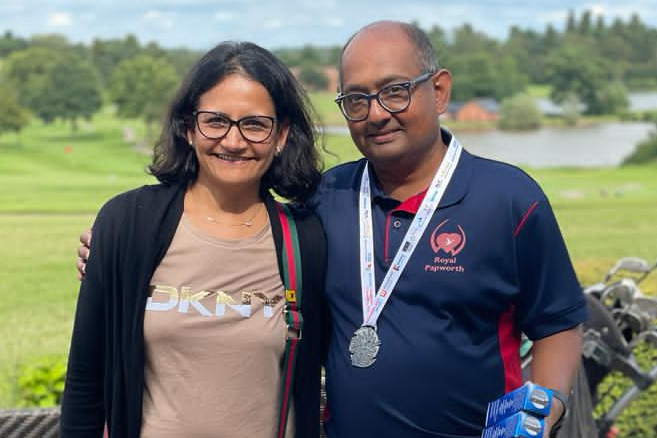At the age of 28, I was diagnosed with arrhythmogenic cardiomyopathy caused by a faulty gene. My heart muscle had become enlarged, and I suffered from ventricular tachycardia (VT) — dangerous, fast heart rhythms. To manage the condition, I had an Implantable Cardioverter Device (ICD) fitted.
For the next 20 years, I managed to live an active lifestyle. I worked, travelled, played sports, and enjoyed a relatively normal life. But towards the end of 2018, everything began to change. I became constantly breathless and exhausted. In April 2019, I underwent an elective ablation procedure to help control my heart condition. What should have been a routine treatment went terribly wrong: I suffered three cardiac arrests in the operating theatre and was now in end-stage heart failure.
I was told I needed a heart transplant. In July 2019, I was referred to the Royal Papworth Hospital in Cambridge and placed on the urgent transplant waiting list. The next few months were the hardest of my life. My heart was barely functioning, and my other organs were beginning to fail. Walking a few steps or even holding a short conversation left me gasping for breath. I couldn’t sleep, sit, walk, or eat properly. I relied on my wife Kajal for almost everything — washing, dressing, getting into bed.
My illness had taken away my independence and my dignity. For my family, it was painful to watch. For me, I was simply grateful to wake up alive each morning. My condition worsened, and I needed frequent hospitalisations. In early November 2019, my transplant team decided I had to remain in hospital until a donor heart was
found. Between July and December 2019, I had had three false alarms.
Finally, in December 2019, I received the call – it was real and I received the gift of life. When I regained consciousness after my 10-hour surgery, I immediately noticed something extraordinary. I could hear my new heart beating, and for the first time in years, I felt warmth flow through my body. Within days, I was doing things that had seemed impossible before: walking, climbing stairs, and most importantly, breathing freely.


I had been given a second chance at life. If it wasn’t for the world class Transplant Team at Royal Papworth Hospital, my wife, my family and my closest friends, I wouldn’t be here today. Their care, support and belief carried me through the darkest moments. I will always be grateful to them. Since my heart transplant, I’ve been able to live fully again. I’ve returned to work, travelled, and picked up the sports I love. Golf has always been a passion of mine.
In July 2022, I competed in my first British Transplant Games in Leeds. I had the privilege of meeting donor families there — families who had lost loved ones but found pride in knowing their legacy lived on through others. Their courage and generosity left a deep impression on me.
In 2023, I won a silver medal in golf at the Transplant Games in Coventry, and in 2024, I added a bronze medal in volleyball at the Nottingham Transplant Games. But none of this would have been possible without my donor and their family. They are the true heroes of my story. In their darkest hour, they made the selfless decision to donate their loved one’s organs. That act gave me a new heart and life. They are always in my thoughts, and I will be eternally grateful to them.
Organ donation doesn’t just save lives — it transforms them. It gives families hope and restores futures that might have been lost otherwise. Too often, families are unsure of their loved one’s wishes when faced with the decision. That is why it is so important to have conversations with your family about organ donation. I am living proof of the power of that decision. I was given a second chance, and I am determined to make the most of it. Register your decision for organ donation, and please tell your family about your wishes.

